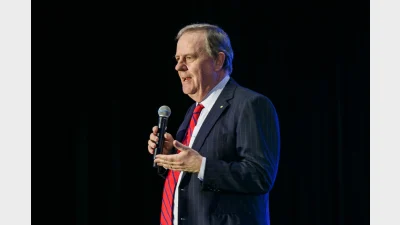Has super achieved its original aims?



The idea of compulsory superannuation has “not been entirely successful” in meeting its intended goals, according to Future Fund chair Peter Costello.
Speaking at the UBS conference in Sydney, Future Fund chair and former treasurer Peter Costello discussed the $3 trillion that had accumulated since the introduction of superannuation in 1992 by the Hawke government.
At the time, it was stated that super would promote self-funded retirement savings and reduce reliance on a publicly funded pension system. A ‘three-pillar approach’ to retirement included compulsory employer contributions, voluntary member contributions to super funds and a means-test government-funded age pension.
However, Costello felt that despite the contributions made by members, super is not yet enough to mean people require no help from the state.
“The purpose of compulsory superannuation was to get this generation, the Boomer generation, to fund their own retirement and not draw down on public finances. What we are finding is the accumulation you make might be enough to take you off a part-pension but not fully, so compulsory superannuation has not been entirely successful,” Costello said.
“It will save some money but it won’t save a lot so it’s making a contribution, but not the contribution we had hoped.”
Costello has been at the head at sovereign wealth fund Future Fund since its creation in 2006, but will step down in February 2024, one of three guardians to depart in the next few months.
Referencing suggestions that the Future Fund should be liquidated, Costello said the problem is it will be unlikely to be rebuilt if that happened.
“Once it is spent, it is gone, it will never be replaced and our financial situation will be even more precarious. I would like to see this asset around for a very long time to come.”
Recommended for you
Australia’s largest super fund, AustralianSuper, has announced multiple additions to its executive leadership team to focus on global growth and innovation.
Super Review rounds up last month’s biggest people moves in the superannuation industry, including a new fund chair and a private markets head.
Investment returns for the Future Fund hit a milestone in September, adding $200 billion in value for the first time ever.
Australia’s largest super funds have deepened private markets exposure, scaled internal investment capability, and balanced liquidity as competition and consolidation intensify.










